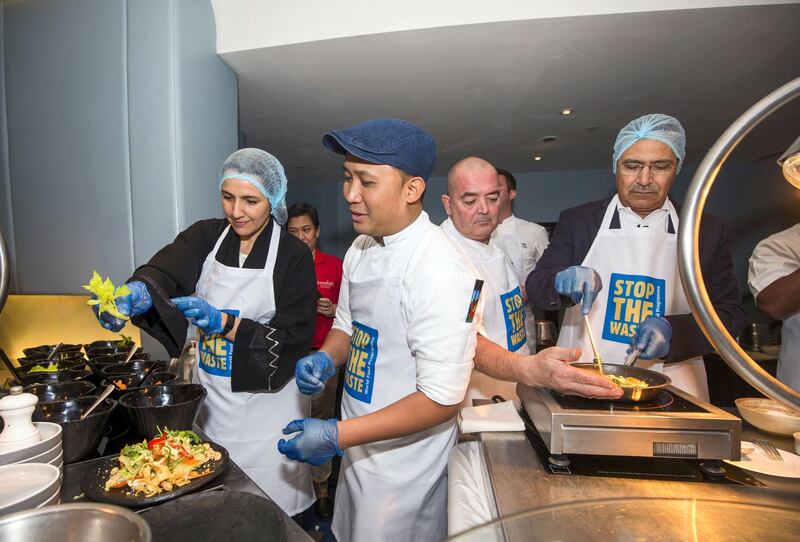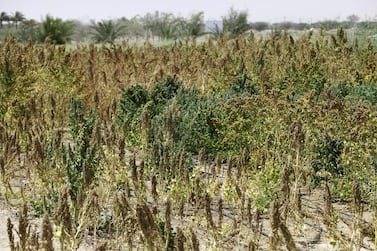Emiratis and UAE residents have been asked to order only as much food as they can eat or cook at home and buy groceries in small amounts in a bid to reduce the country’s food waste.
The average person in the UAE wastes 197kg of food each year — up to double the amount compared to the average person in Europe or North America, who wastes between 95kg to 115kg annually.
On Wednesday, World Food Day, 40 government and international agency representatives gathered at the International Centre for Biosaline Agriculture in Dubai to discuss food security and the global fight against hunger and malnutrition.
“Around 820 million people are going to bed hungry and we are wasting a lot of food. We need to step up our game. The clock is ticking and we need to put our efforts together,” said Mariam Al Mehairi, the UAE’s Minister of State for Future Food Security, who addressed the round-table on a video call.
Prof Bhanu Chowdhary, dean of the College of Food and Agriculture at United Arab Emirates University, said people needed only take simple steps to drastically reduce food waste.
"Go to any restaurant and you will see how much food is wasted. Order only as much as you can consume. If you are under the illusion that you will take the food home, there is a 99 per cent chance it will end up in the bin," he said.
He said people’s reliance on takeaways, rather than home cooked meals, also contributed to waste.
"If you cook, there are greater chances you will be eating healthy food and the amount of waste will be reduced considerably.
"The message is to buy less and, when you order, be very careful.
"Let us adopt a healthy lifestyle, good eating habits and ensure whatever we save reaches the people who need it."
Dr Mageed Yahia, country director at World Food Programme, said food was often wasted at hotels and during celebrations such as weddings.
"The month of Ramadan becomes a festival of waste but it should be the other way around as it is a festival of fasting," he said.
Dubai Municipality previously said food comprised almost a quarter of the emirate’s total waste but that this rose to 55 per cent during Ramadan.
As part of efforts to reduce waste, fight malnutrition and decrease the country’s carbon footprint by importing produce, experts at the meeting suggested the UAE diversify its crops.
Diets worldwide are skewed towards a few major crops like wheat, maize and rice. Of roughly 6,000 plant species cultivated for food throughout human history, fewer than 200 are produced at a significant level.
Dr Ismahane Elouafi, director general of International Centre for Biosaline Agriculture, an international, non-profit agricultural research centre, said global diets need to include more climate-resilient and nutritious crops instead.
“A few staple crops dominate our food production systems and diets. This needs to change as it is neither good for our health nor is sustainable for our planet," said Dr Elouafi.
She said some major crops are ill-adapted to the effects of climate change, posing a risk to global food production.
"We must diversify the crops we grow so that we have more naturally nutritious foods and our food production systems are better prepared for climate change and other risks.
"Agrobiodiversity and crop diversification hold the key to sustainable food production and healthy diets. There are many neglected and underutilised crops that are more nutritious.”
She said Quinoa, a super crop from the Andes that is also grown in the UAE, was a great example of a predominantly locally consumed seed became a staple on menus worldwide.







